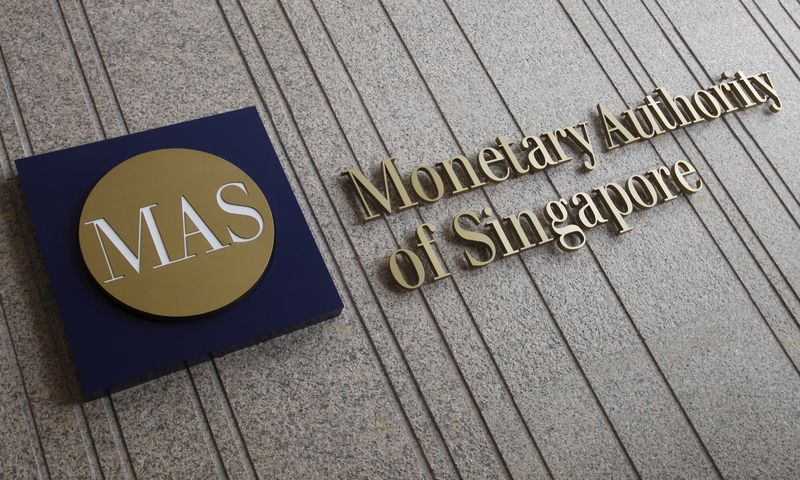By Xinghui Kok and Yantoultra Ngui
SINGAPORE (Reuters) -Singapore’s central financial institution on Friday left its financial coverage settings unchanged for the fifth consecutive time, as anticipated, as development picks up and forward of an anticipated year-end moderation in inflation.The Financial Authority of Singapore (MAS) mentioned it expects the economic system to strengthen over the remainder of 2024, with development coming in nearer to its potential fee of two–3%.
“Barring renewed shocks to costs, core inflation should step down more discernibly in Q4, and fall further to around 2% in 2025,” MAS mentioned.
The financial institution mentioned it should keep the prevailing fee of appreciation of its alternate rate-based coverage band generally known as the Nominal Efficient Change Price, or S$NEER.
The width and the extent at which the band is centred didn’t change.
MAS mentioned present coverage settings stay applicable and “will keep a restraining effect on imported inflation as well as domestic cost pressures, and ensure medium-term price stability”.
The financial institution adjusted its headline inflation forecast downwards to common 2.0–3.0% this yr from 2.5–3.5%, however saved its core inflation forecast at 2.5–3.5%.
“MAS kept its two-sided inflation risk outlook at this juncture while waiting for the 2025 outlook to fall to more benign levels around 2%,” OCBC economist Selena Ling mentioned. “In my view, this affords maximum flexibility for the upcoming policy meetings while awaiting confirmation or conviction that core CPI will indeed step down more discernibly in the fourth quarter.”
Maybank economist Chua Hak Bin mentioned he did not assume the decrease headline inflation forecast meant MAS was preparing for an easing within the subsequent coverage schedule in October.
“With growth returning to potential and core inflation somewhat sticky, MAS will likely maintain the current pace of appreciation for the rest of the year,” mentioned Chua.
Of the ten analysts polled by Reuters forward of the overview, 9 had anticipated the MAS to carry coverage settings regular.

Gross home product (GDP) rose 2.9% on a yearly foundation within the second quarter of 2024.Annual core inflation fell to 2.9% in June, the bottom since March 2022.
Full-year development in 2023 was 1.1%, down from 3.8% in 2022.As an open, trade-reliant economic system, Singapore makes use of a novel technique of managing financial coverage, tweaking the alternate fee of its greenback towards a basket of currencies as an alternative of home rates of interest like most different international locations.




